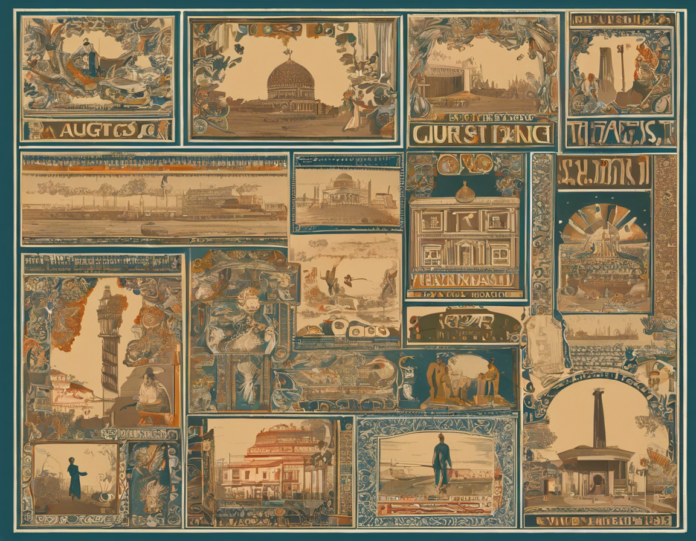On 15 August, India commemorates its independence from British rule, a pivotal moment in the nation’s history that marked the end of years of colonial domination. This day holds immense significance for Indians worldwide, symbolizing the struggle for freedom, democracy, and equality. The celebrations on 15 August are marked by flag-hoisting ceremonies, cultural events, parades, and various other activities that showcase the rich tapestry of Indian heritage and diversity.
The History of India’s Independence
India’s journey to independence was marked by decades of resistance, protests, and sacrifices by its people who sought to break free from oppressive British rule. The Indian independence movement gained momentum in the early 20th century, with leaders like Mahatma Gandhi, Jawaharlal Nehru, and Sardar Patel leading the charge for freedom through non-violent civil disobedience and mass mobilization.
On 15 August 1947, India finally achieved its long-awaited independence, with the country’s first Prime Minister, Jawaharlal Nehru, unfurling the tricolor flag at the historic Red Fort in Delhi. The joy and euphoria that reverberated across the country on that day marked the beginning of a new era for India, as it embarked on a journey towards nation-building, democracy, and progress.
Significance of Independence Day Celebrations
Independence Day celebrations in India are not merely a commemoration of a historical event; they are a reaffirmation of the values that the nation stands for – unity, diversity, freedom, and democracy. The flag-hoisting ceremony by the Prime Minister at the Red Fort in Delhi, followed by a patriotic speech, sets the tone for the day, as millions of Indians tune in to listen to the address and feel a sense of pride in their country.
Schools, colleges, offices, and residential colonies across the country organize flag-hoisting ceremonies, cultural programs, and events that showcase India’s rich cultural heritage through music, dance, and other art forms. Patriotic songs like “Vande Mataram” and “Jana Gana Mana” echo through the air, instilling a sense of national pride and unity among the people.
Evolution of Independence Day Celebrations
Over the years, Independence Day celebrations in India have evolved to reflect the changing times and the aspirations of a young, dynamic nation. The emphasis has shifted towards inclusivity, with special events organized to honor the contributions of freedom fighters, soldiers, and other unsung heroes who have played a role in shaping the nation’s destiny.
In recent years, technology has played a crucial role in amplifying the reach and impact of Independence Day celebrations, with social media platforms, live streaming, and virtual events enabling people from diverse backgrounds to participate in the festivities. The #IndiaIndependenceDay hashtag trends on Twitter, Facebook, and Instagram, as people share their thoughts, wishes, and memories associated with this historic day.
Key Highlights of Independence Day Celebrations
- Flag Hoisting: The unfurling of the national flag is a central feature of Independence Day celebrations, symbolizing the sovereignty and unity of the nation.
- Patriotic Speeches: Political leaders and dignitaries deliver speeches that highlight the achievements of the nation and outline the path ahead.
- Cultural Programs: Dance performances, skits, and music recitals showcase the cultural diversity of India and evoke a sense of national pride.
- Parades and March Past: Military parades, air shows, and march pasts by armed forces personnel pay tribute to the defenders of the nation.
- Fireworks Display: The day culminates in a spectacular display of fireworks that lights up the night sky and symbolizes hope and prosperity.
The Spirit of Independence Day
Independence Day is not just a holiday; it is a day of reflection, remembrance, and renewal of vows to uphold the principles of freedom, democracy, and equality. It is a day when people from all walks of life come together to celebrate their shared heritage and aspirations for a better tomorrow.
As the tricolor flag flutters in the breeze, and the national anthem resounds in the hearts of millions of Indians, the spirit of unity and resilience shines through, inspiring generations to come to cherish the hard-won freedom and strive towards a brighter future for the nation.
Frequently Asked Questions (FAQs)
Q1: Why is 15 August celebrated as Independence Day in India?
A1: 15 August marks the day when India gained independence from British rule in 1947, after years of struggle and sacrifice by its people.
Q2: What is the significance of the flag-hoisting ceremony on Independence Day?
A2: The flag-hoisting ceremony symbolizes the sovereignty and unity of the nation and is a patriotic tradition that reaffirms the values of freedom and democracy.
Q3: How do people celebrate Independence Day in India?
A3: People celebrate Independence Day by hoisting the national flag, participating in cultural programs, attending parades, and engaging in various patriotic activities.
Q4: Who delivers the Independence Day speech in India, and what is its importance?
A4: The Prime Minister of India delivers the Independence Day speech from the Red Fort in Delhi, outlining the achievements of the nation and sharing the vision for the future.
Q5: How has technology influenced Independence Day celebrations in recent years?
A5: Technology has played a significant role in expanding the reach of Independence Day celebrations through live streaming, social media engagement, and virtual events.
Q6: What are some key highlights of Independence Day celebrations in India?
A6: Key highlights include flag hoisting, patriotic speeches, cultural programs, parades, march pasts, and fireworks displays that showcase the spirit of national pride and unity.

